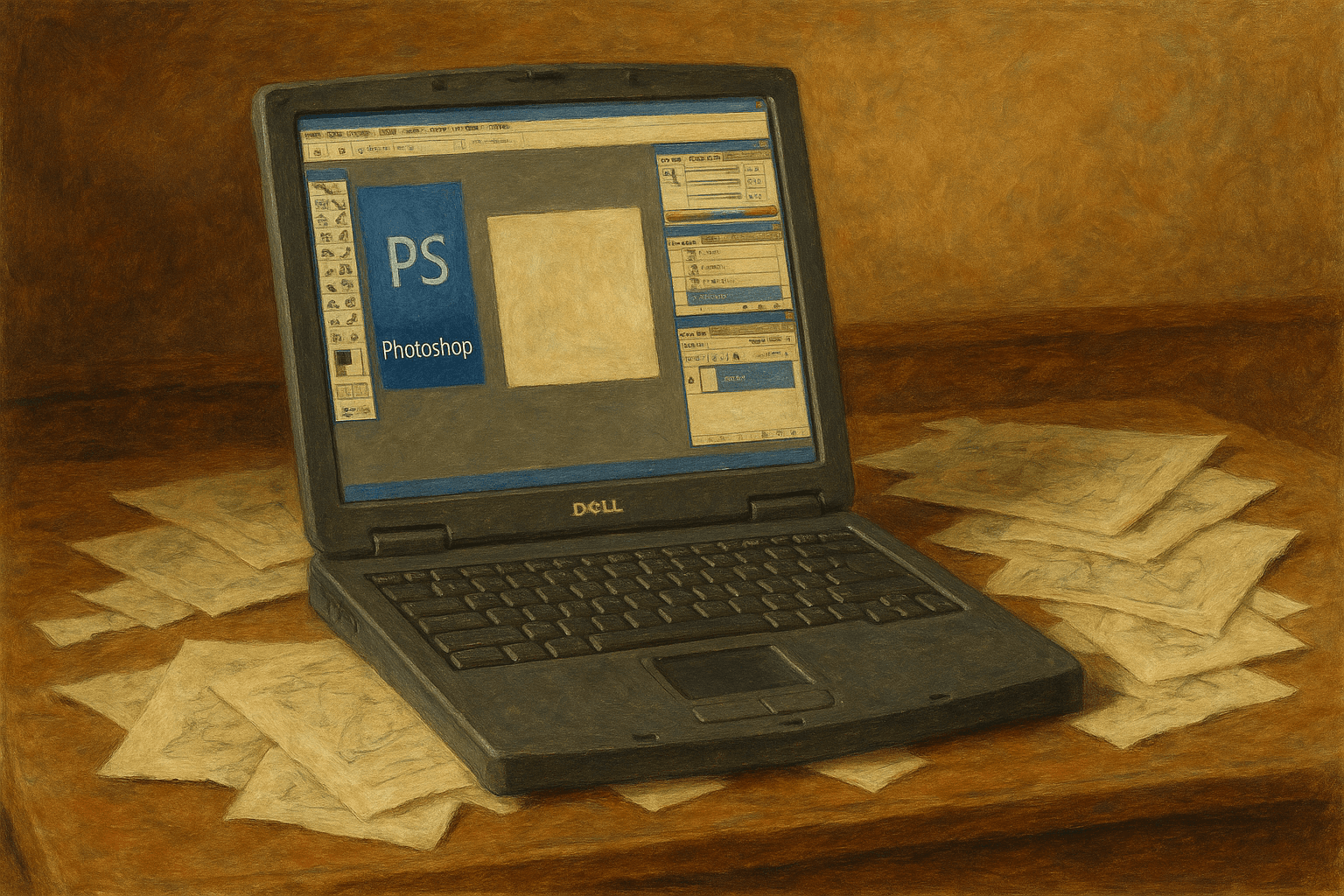- Published on
From Photoshop to Polymath
- Authors

- Name
- Daniel Cress

From Photoshop to Polymath: My Personal Technology Journey
It's hard to believe it's been over fifteen years since I first stepped into the world of software development. Back in 2009, I was just an eager intern with a janky Dell laptop that wheezed and sputtered every time I opened Photoshop. I still remember the anxiety of waiting for it to process a simple layer effect while my more experienced colleagues breezed through complex designs on their Macbooks.
The Humble Beginnings
Those early days were defined by late nights fueled by determination and instant ramen. I'd spend my work hours learning just enough HTML and CSS and style to get by, then return home to dive deeper into tutorials and practice projects. My browser history was a trail of "how to center a div" searches and Stack Overflow visits. Each small victory—getting a layout to look right across different browsers or finally understanding the box model—felt monumental.
Finding My Frontend Footing
As the years passed, I gravitated toward the frontend development side of things. There was something deeply satisfying about crafting interfaces that weren't just visually appealing but also thoughtfully interactive. I became obsessed with the subtle details—the perfect easing function for a dropdown menu, the precise timing of a hover state, the seamless transition between pages.
Growing into Senior Roles
Eventually, I found myself in senior engineering roles, where the scope expanded beyond just making things pretty and interactive. I was architecting entire frontend systems, making decisions that would affect codebases for years to come, and mentoring junior developers who reminded me of my younger self. This period forced me to deepen my understanding of programming concepts. I wasn't just writing code anymore; I was thinking about scalability, performance, accessibility, and maintainability. My once-simple HTML and CSS knowledge had evolved into a comprehensive grasp of modern frameworks, build tools, and design systems.
Beyond Job Titles
Somewhere along this journey, something interesting happened. I started seeing myself less as a "frontend" or "full-stack" engineer and more as simply a technologist and problem solver. These prescribed roles, while useful for job descriptions and team structures, began to feel unnecessarily constraining. I realized that the most valuable skill I'd developed wasn't proficiency in any particular language or framework—it was the ability to approach problems with creativity and resourcefulness, regardless of the tools at hand.
The Musician's Mindset
I think about it like musicianship. A true musician isn't defined by mastery of a single instrument but by their ear, their understanding of music theory, and their ability to create something beautiful in various contexts. Sure, a guitarist might not be able to sit down at a baby grand piano and immediately play a concerto. But with a good ear and fundamental musical knowledge, they can quickly find notes that complement what's already being played, adding their unique voice to the ensemble.
The AI Inflection Point
This perspective has become even more relevant with the advent of AI tools. We're entering an era where a good technologist with the right mindset can create almost anything, regardless of their specialized training. The technical details—the exact syntax of a language, the specific API calls of a framework—those can increasingly be handled with AI assistance. What remains invaluable is the human ability to envision possibilities, to understand user needs, and to orchestrate various technologies into coherent, meaningful experiences.
Looking Forward
Fifteen years in, that struggling intern with the overheating laptop feels simultaneously like a distant memory and an integral part of who I am today. The fundamental curiosity and determination that drove me to learn HTML, CSS and JavaScript late into the night remains my professional compass. I no longer define myself by the technologies I use or the role descriptions on my resume. Instead, I see myself as someone who builds things that solve problems and create value—the tools are secondary to the vision. For those just starting their journey in tech, I'd offer this: learn the fundamentals deeply, but don't get too attached to specific technologies or titles. Cultivate versatility. Approach each new tool or framework not as a discrete skill to master but as another instrument you can play when the composition calls for it. The most valuable asset you can develop isn't expertise in today's hottest framework—it's the confidence that whatever challenges tomorrow brings, you'll figure out how to face them.